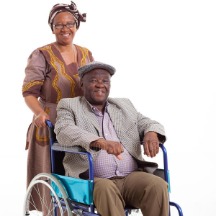Key takeaways
- Review your essential and discretionary expenses.
- Make smart use of unemployment and savings, severance, or disability money.
- Formulate a withdrawal strategy that is sensitive to tax considerations.
For some, retiring early is a dream. But for those faced with an unplanned early retirement—they are laid off late in their career, face a job loss related to COVID, or have a medical disability—it may be a different story, especially if you are not yet eligible to claim Social Security beginning at age 62.
Although you don't always have control over when you retire, there are ways to help bridge the gap between when your paycheck stops and when you start taking Social Security—or go back to work.
While you may be eligible to begin taking Social Security at age 62, that might not be the best decision, even if you aren't working. That's because after you reach age 62, every year that you delay taking Social Security up to age 70, you could receive up to 8% more in future monthly payments. Once you reach age 70, increases stop, so there is no benefit to waiting past age 70. Also, delaying your own Social Security may increase your spouse's survivor benefit.
If you find yourself unintentionally retired due to a medical disability or layoff, use the 3 key steps outlined below to assess your situation and income options. Then, take a look at a "bridge" strategy that may be able to help you keep your retirement on track. Important note: If you're in this situation, you'll be making significant financial decisions, and should consult with a financial advisor before doing anything.
While you may be eligible to begin taking Social Security at age 62, that might not be the best decision, even if you aren't working. That's because after you reach age 62, every year that you delay taking Social Security up to age 70, you could receive up to 8% more in future monthly payments. Once you reach age 70, increases stop, so there is no benefit to waiting past age 70. Also, delaying your own Social Security may increase your spouse's survivor benefit.
If you find yourself unintentionally retired due to a medical disability or layoff, use the 3 key steps outlined below to assess your situation and income options. Then, take a look at a "bridge" strategy that may be able to help you keep your retirement on track. Important note: If you're in this situation, you'll be making significant financial decisions, and should consult with a financial advisor before doing anything.
Read More







